SHOOTING STRAIGHT - STRIP OWNER BILL BADER JR. DISCUSSES THE PERILOUS TIMES DRAG RACING FACES
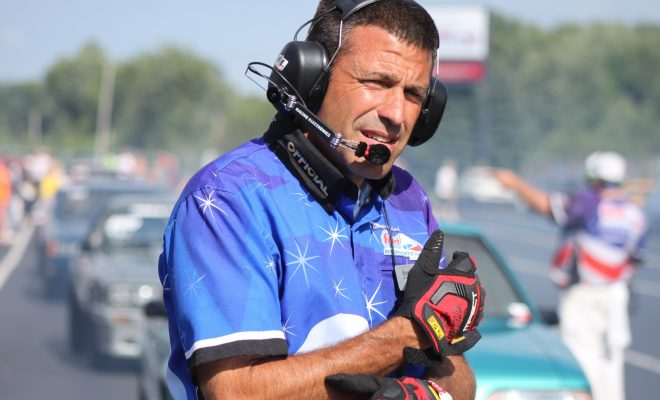 It's in the nature of a drag strip operator. Prepare to get slapped in the face by calamity, and once you make it through the tempest, there'll be another waiting for you. They are all too often gluttons for punishment as some would assume.
It's in the nature of a drag strip operator. Prepare to get slapped in the face by calamity, and once you make it through the tempest, there'll be another waiting for you. They are all too often gluttons for punishment as some would assume.
However, there are those such as second-generation drag strip owner Bill Bader Jr., who understand their destiny in giving fans a show worthy of their hard-earned entertainment dollars.
Almost a year ago, overwhelming rainstorms in the area did a convincing job of sinking his season. And now today, an ever-expanding Coronavirus pandemic threatens a second whammy.
CompetitionPlus.com Editor Bobby Bennett, in his first assignment back on the job, caught up with the straight-shooting Bader for a discussion of today's drag racing landscape, primarily from a track owner's point of view.
COMPETITION PLUS - I can only imagine how tough it is being a drag strip operator at this time. Tell me how tough it's been for you guys.
BILL BADER JR. - "It's a family business and I'm a second-generation owner. We've owned this track since 1974 and we hold a certain place in the industry and all of the expectations that go along with it. And I was going into 2020 with exceedingly high expectations. Ticket sales were up; sponsorship was up, I started tracking weather trends in March. We were having beautiful weekends, and I really was optimistic until about the middle of the month, and it has been a crushing blow, obviously financially, but even more so emotionally.
"We had 25 full-time people working here at the track. I laid off 21 of them. And, and this is, these are men and women that are family. Forget employee, forget worker, forget whatever the hell descriptive term you want to use for someone you pay every two weeks. This is family. Many of these folks I have ... I built this team starting when dad left here to purchase IHRA, and that was in the spring of what, 1999 I think, so it's 2020, so I have been building this team and to have to disassemble it like that, broke my heart. And so it's not a fun business to be in right now."
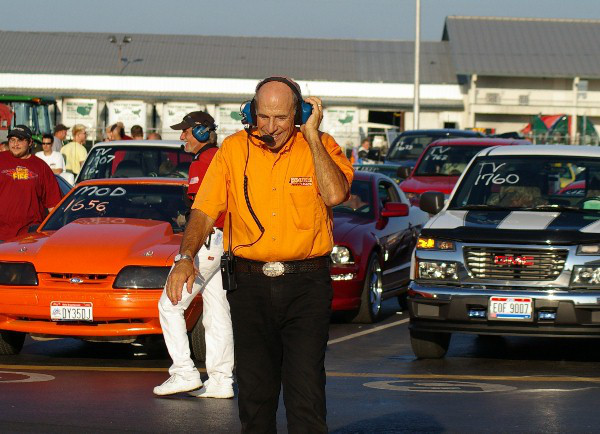 CP - Your dad has always been hands-on in his approach to everything and I'm sure he's one of your biggest fans. Have the two of you compared notes during this time?
CP - Your dad has always been hands-on in his approach to everything and I'm sure he's one of your biggest fans. Have the two of you compared notes during this time?
BB - Dad lives in a very remote area of Northern Idaho, where he resides nearly full time. And I can tell you that in the last 14 days when he and I would have perhaps gone a year ago during the same timeframe, maybe spoken one time or exchanged an email. Because dad hasn't really stepped foot on Summit Motorsports Park property I'm guessing in six or seven years, so he is enjoying retirement. He's very active out West and so fast forward one year to COVID-19, and I bet we've spoken probably every day and we were just trying to like everybody, read the tea leaves, look into our crystal ball. We want to make good decisions. We serve a lot of masters.
"I'm getting emails from people who talk about attending the Night Under Fire. It's a family tradition. We've been doing it as a family for 16 years. When we laid off all those people and went down to a skeleton crew, I forwarded all those emails to me because I want to hear what our guests are saying.
"I don't want to rely on a translation, not even from a family member. So I'm listening to these stories whether they're sponsors, ticket buyers or participants. So we serve a lot of masters and so our responsibility is profound and dad and I and, to his credit, he is a trusted advisor but he does not overstep. He does not. I mean he serves in that role. And so he, we just want to do it right.
"We want to do right by our team members. We want to do right by our sponsors. We want to do right by our participants. We've got community pressure. This area here in Erie County rely on the economic impact that we generate so we serve a lot of masters. And oh, by the way, I don't want to be the guy who is responsible for the decline, or the demise, or bankrupting his family business. So I take all this very seriously - and this is all I do. So the pressure is great. Can I talk regularly? We're just trying to make the very best decisions in the long term.
"We've got to be fiscally responsible in the short term, but we gain nothing if we survive in the short term [then] alienate all of the masters we serve forever, and have no business to open up to when this cloud lifts and we can get back to business as usual. So there's a balancing act between the short term pain in exchange for long term gain. And that's really what we're trying to do right now is just make smart decisions for everybody, not just the Baders.
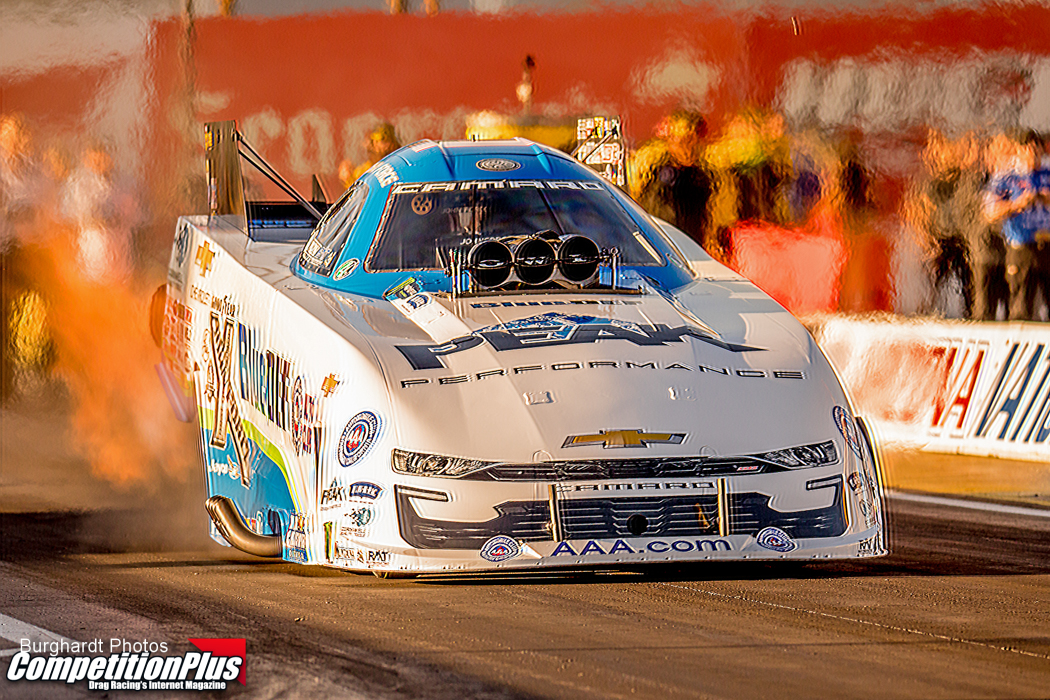
BB - That's a great question. I'm going to say that we're going to have a tough road. Why? For two reasons. Number one, I think it's not a secret that we weren't on the greatest footing to begin with. That's a problem. And then secondarily, there are going to be all of the hangover effects of COVID-19. There are a... we set a one week record for the amount of people that were laid off. The previous record I think was set in late 2008 after we recognized we were entering the great recession. We exceeded 3 million layoffs in one week. We're going to see all of these family businesses, many of which estimates are 50% won't recover. So there's an emotional fall out. There is a financial fallout. There is the uncertain. We're in a presidential election year.
"There's uncertainty in corporate America on who is going to be our Commander-in-Chief for the next 4 years. It was to be an Olympic year up until recently. That was a tremendous financial drain. So when you have an Olympic year in a presidential year, selling sponsorship just gets exponentially more difficult. What dad and I talk about frequently and what I'm fearful of is this $2 trillion stimulus is going to throw us into a recession of some shape, matter, or form. That recession will take its toll on ticket buyers. It will take its toll on racers, it will take its toll on sponsors, and so I think it will take its toll on our industry. I think it will take its toll on any type of sports entertainment. I think people will for a period of time rethink financial decisions.
"I recently ordered a train, a Marklin HO scale train several weeks ago. It was a pre-order. It arrived at my door yesterday. It sat there for six hours because quite frankly, I didn't know what to do with it. Do I wipe it down? Do I Lysol it? Do I let it sit for 14 days? What the hell do I do with this thing to have to keep myself, keep my family safe? That stigma is a microcosm of the world and how they think, where they choose to spend their discretionary income, if they have discretionary income.
"So I think it will take a period of time. Now on the flip side of that, people are going to seek affordable family entertainment. And guess what? Drag racing is right here. Many of our facilities, our industry is family friendly. It's patriotic, it's Americana. It's so many of the things that make our sport great will carry us through this difficult period. But I do think there will be some pain in the process.
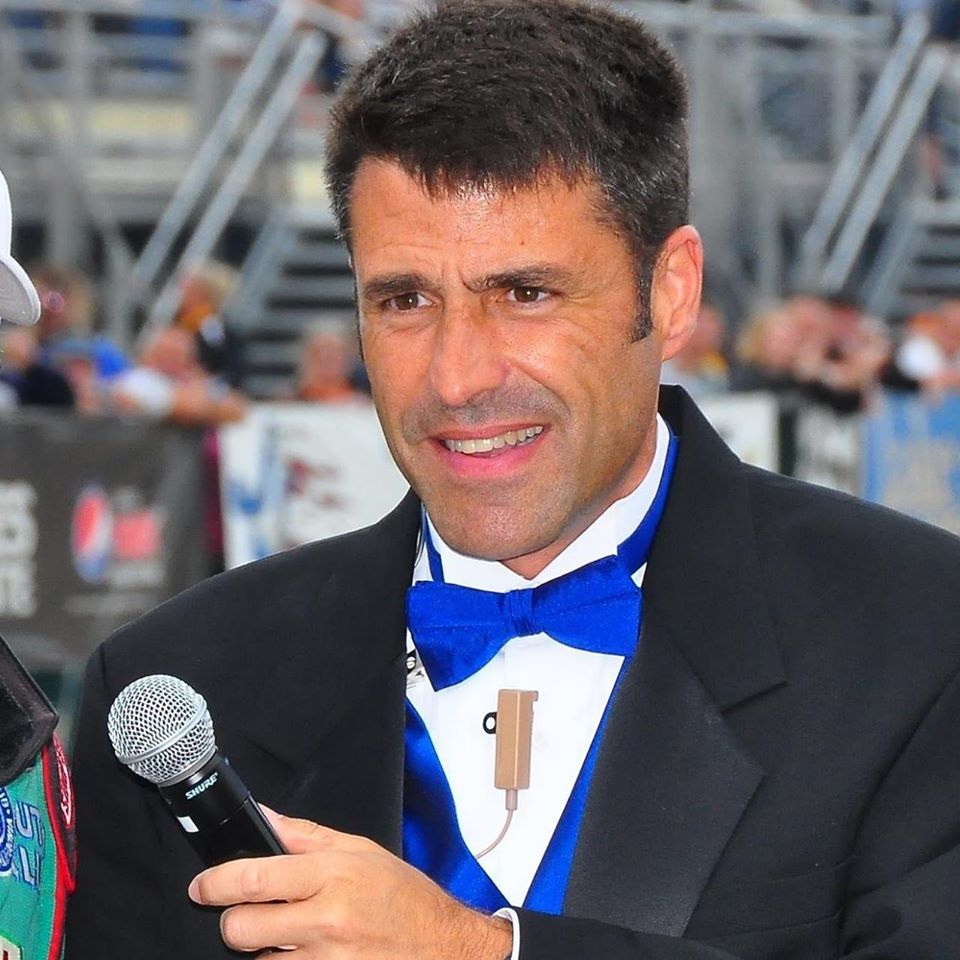 CP - NHRA released a schedule, and they anticipate returning to racing by the first week of June. Do you believe the revised NHRA schedule is over-ambitious or they're doing what they have to do and need to do?
CP - NHRA released a schedule, and they anticipate returning to racing by the first week of June. Do you believe the revised NHRA schedule is over-ambitious or they're doing what they have to do and need to do?
BB - That's a tough question, but I will answer it honestly because there's no other way to answer if other than truthfully. I think that if you look at sports, there has been one sports property that has been unwavering, and that's the NFL. They haven't darted left, they haven't darted right. They haven't taken their customers or their guests on this ride of we're going to do this. No, we're going to do this. No, we're going to do that. Major league baseball, heck, I saw a story on espn.com proposing a 32-game season. And now they're talking about the potential of the playoffs in December.
"All of this speculation and all of this uncertainty creates confusion, creates restlessness; how many times can you tell someone who spends money with you, 'Here's what we're going to do' before they lose faith in you?"
"I mean, I'm going to tell you, okay, Bobby, we're going to do this today. And then a week later I tell you, no, we're going to do this. And then two weeks later, I tell you, we're on plan C and you're going to say, you know what, Bader, call me when you know what you're doing. Other than that, don't waste my time.
"I think it's probably over-ambitious but I don't fault them for that because I think there needs to be a plan. What I don't want to see is Plan B, Plan C, Plan D. I think that's problematic, but here we are sitting in March trying to speculate. I mean in our event, in our case it's 90 days away. I've got a plan for that event. I can't not plan for it and then be caught with my pants down so to speak.
"So I think it probably is a little over-ambitious but I understand it. I hope we can achieve it and everybody has their perception of the curve, and flattening the curve. I talked to someone today from the health department. And it's interesting because there's a trade off in this with this pandemic and the trade off is this: if we don't quarantine and we get the country back to normal, the curve will become so incredibly steep that the demand will so far outweigh the supply that the casualties as a result of that will be extraordinary.
"The inverse is, but we'll rip the bandaid off and we will move through this more quickly, but at an extraordinary price. The inverse of that is we flatten the curve. We can control supply and demand between those that need care and the care provider. We create equilibrium. But in flattening the curve, we extend the duration of the pandemic.
"So I mean at that point it becomes a question, what is the value of a human life? And I think that's the value as, as someone who has suffered COVID-19, I think you would agree that the value of a human life is priceless. So I think right now we've got to do everything we possibly can to ensure that we minimize loss of life. And I think everybody would agree with that. Even the most honcho of capitalists would agree with that. But we can't say, 'Hey, we'll get back to you.
"ll just be dead ass honest with you, we've sold $800,000 in tickets so far to date for the Summit Racing Equipment NHRA Nationals, and all the tracks on the tour had sold collectively tens of millions of dollars in tickets.
"If we say, Hey, we'll get back to you, there could be a tremendous case for refunding those tens of millions of dollars in tickets and oh, by, the way, we may never recover those sales at which point can any of us afford to run an NHRA national event in front of empty grandstands? There is a balancing act between the value of a human life and trying to maintain some financial responsibility because ultimately we want to see drag racing continue. We want to see Summit Motorsports Park open, we want to see all the sanctioned drag strips in this country open, we want to see an NHRA thrive. I answered it as honestly as I could for you.
"I think there would be some that would say, You know what, the threat of a loss of human life is so great and so valuable that why the hell hasn't NHRA just canceled the year? Why hasn't Summit Motorsports Park canceled the year? That is the extreme opposition. And I guess what does drag racing look like? All of these race tracks that, I mean in the case of Baders, in the case of the Bandimeres, in the case of a lot of the family-owned racetracks, Firebird, the New Family, what do we all do? I mean, we're out of business. Don't kid yourself. There are tracks right now and we're one of them that if we can't race this year and we've got sponsor commitments and we've got all of these obligations, if we can't meet those obligations, some of those tracks will close and never reopen.
"I don't know what the right answer is. I know it's going to be different for everybody. I think that there needs to be a balance of being respectful and responsible for human life with trying to maintain some type of long-term sustainability for your business. Somewhere in all of that is the answer. And I don't know, it's a tough one. It's a tough one for sure.
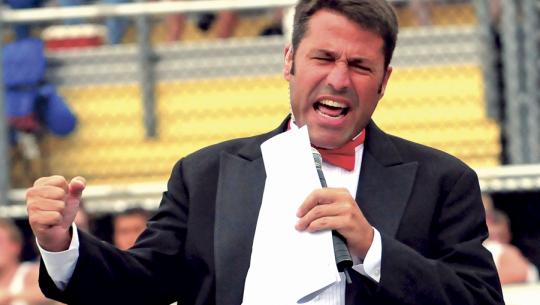 CP - The Captain Obvious in me would say no one could have seen this coming, not even from the highest forms of our government to our sports marketing entities. Nobody could have seen this coming. So if you don't see it coming, how can you prepare for it?
CP - The Captain Obvious in me would say no one could have seen this coming, not even from the highest forms of our government to our sports marketing entities. Nobody could have seen this coming. So if you don't see it coming, how can you prepare for it?
BB - "Last year was the worst year in our history. So I was laying the foundation for being as responsible as I could going into 2020. And of course, like so many race tracks. And I don't know if people realize this or not, but you're in those winter months in December, and January, and February, and you're in those dark periods of winter where there's no income coming in.
"Expenses continue to find their way into your mailbox, utility bills and just things that you have to buy in advance and plan for, and improvements in the off-season that you can't do during race season. I got to March 1st and I finally could exhale because I thought by the grace of God, he got us to March 1st. We open in six weeks, sponsor money will flow in and we get to open for another year.
"And so imagine the adulation of that. And then 14 to 16 days later, here comes this pandemic that brings the world to its knees. And you're right, who... I thought I had done a masterful job of navigating the off -season, I made it. And, and great, we're back into race season and this thing comes out of nowhere and it's very humbling. You realize that no matter how hard you work, no matter how hard you plan, that you really don't matter in the grand scheme of things, it really is all in God's hands, not Bill Bader's hands.
"One of the silver linings in all of this may be that we as a people, we as a nation, wake up and maybe reprioritize a little. I mean, how often have you said, 'Bobby, I've been on the road x amount of weeks. I miss my family.' How often have I said in the middle of summer, 'man, I'm working seven days a week and I'm working 20 hour days. I miss Jayme, I miss my family.'"
"Well here we are thrust together. Ironically enough, as we're about to enter Passover, we're quarantined in our homes and all we're doing is bitching and complaining about it. What is wrong with us? Now the circumstances aren't ideal. But the point is that maybe we need to reprioritize a little bit and get our houses in a little better order. No, we could not have seen this coming, but maybe it's exactly what we needed. Maybe this was our wake-up call and maybe there's some spiritual message in all of this, if you believe in that, which I certainly do."
CP - Amen.









































